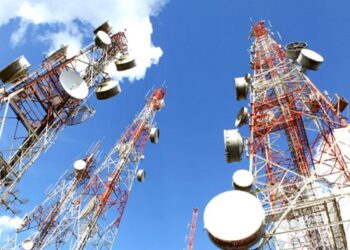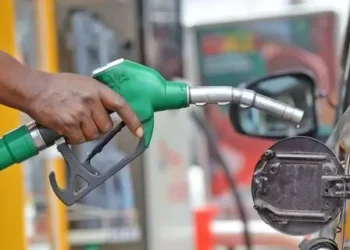President Muhammadu Buhari‘s decision to stop distribution of fuel to filling stations close to the country’s land borders has started affecting businesses in the area. The ban is currently taking its toll on network providers.
Telecommunications companies are bearing the brunt and according to the Chairman of Association of Licensed Telecommunications Operators of Nigeria (ALTON), Gbenga Adebayo, the situation might escalate if not properly handled.
How it started: In April 2019, Nairametrics reported that a tripartite committee consisting of the Nigerian National Petroleum Corporation (NNPC), Nigeria Customs Service (NCS), and the Department of Petroleum Resources (DPR), was set up to tackle the growing smuggling of petroleum products to neighbouring countries. The committee reported that some unlicensed filling stations along the border had been identified as being responsible for the smuggling of petroleum products.

Seven months after, the Federal Government banned the distribution of petroleum products to filling stations close to the land borders. The affected oil companies are those located 20 kilometres to the borders. The Nigeria Customs Service is in charge of carrying out the directive.
How it’s affecting telecoms: The ALTON chairman said the directive was affecting the operations of telecommunications companies located close to the borders. He said the inability of the petrol stations to get fuel made it difficult for telecoms firms to refill power generators at their base stations that power their towers.
According to Adebayo, if the ban continues, it might lead to the shutdown of communications services, and the adverse impact “may be significant if the necessary agencies of government do not urgently intervene in the situation.”
“So far, the Nigeria Customs Service has stopped our members’ trucks in Kebbi, Kano and Calabar from supplying diesel to the telecommunications sites within the borders areas, which may lead to total shut down of communications system/services and by implications worsen the security operations within those areas,” Adebayo said while calling for the intervention of the Nigerian Communications Commission (NCC) and the Ministry of Communications and Digital Economy.

Problem with ban order: Nairametrics had reported that the decision to stop distributing petroleum products to the filling stations close to the borders could affect the daily operation and threaten the existence of oil companies.
When there’s no longer fuel for the filling stations to meet the demand of their teeming customers, they could be forced to downsize and shut down operation. With the impact already affecting non-oil companies, the effect could be more damaging.
[READ MORE: Patronage of Ghanaian goods spike despite border closure]




















